Training itineraries implemented in Sagiter
The different tools, approaches and pedagogical methods described (web site) have been adapted, integrated and tested by each of the Sagiter partners in the different training pathways: in contexts of initial or continuous training courses, with peer groups and mixed groups combining different professional categories, in response to varied training objectives and durations.We consequently submit a critical analysis of these pathways and hope that you can draw inspiration from these for the development of your own training courses.
In order to help you explore the pathways which best correspond to your requirements, we have chosen to present these with an entry point per objective and per target public.
However training to agroecological knowledge with a mix trainee group is a enriching experience. It's already corresponding to a pedagogical choice favourable to build these knowledge by cross regards. Entry by public target, proposed here isn't exclusive :
- Agricultural advisors in continuing education
- Students in initial education
- Farmers and future farmers in continuing education and vocational training
- Teachers, trainers and agricultural advisors in continuing education
- Teachers, trainers, agricultural advisors, farmers, students
Audience : Agricultural advisors in continuing education
Training sessions of Vlaamse LandMaatschappij (VLM) - Brussels, Belgium
Topics : Different dimensions of agroecology
Agroecology as an orienting concept
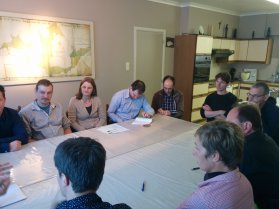
Duration : 2 x 0,5 day
Period : June, Octobre 2014
In this module participants got to know the different dimensions on agroecology : social, ecological and political. This dimensions are explained from the point of view of an agrocological scientist and from the point of view of an agroecological farmer.
Topics : Role, Competences, Attitude
Agroecology and the role of the advisor
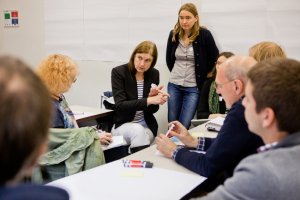
Duration : 3 x 0,5 day
Period : November-december 2014 - january 2015
In this module participants reflect on the role of an advisor and its behaviour, attitudes and competences.
Topics : Tools, Methods, Experiments, Dissemination, Experiences
The development and application of tools, methods and events that could be used to communicate and disseminate agroecological knowledge and practical experience
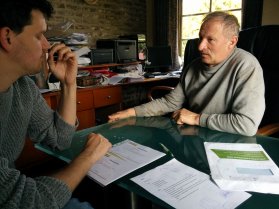
Duration : 3 x 0,5 day (preparation 2-3 days/tool)
Period : august - september - november 2015
In this module participants make tools on their own and experiment with methods in orde to disseminate knowledge and practical experiences of agroecology.
Analysis of VLM training sessions
You can find here the link to analysis sheets of VLM traineeship .Training sessions of Chamber of Agriculture and Forestry of Slovenia (CAFS) - Ljubljana, Slovenia
Topics : Agroecology concept, Position of advisor
Demonstration garden â?? Permaculture in action
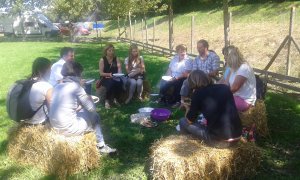
Duration : 1 day
Period : 23. 8. 2016
To promote the approaches of agroecology advisors have to gain their own experience. To understand what is AE and how it fits into development of rural space and social interactions in rural areas, the visit to demonstration gardens of AGRA fair in G. Radgona, Slovenia was organized. On the case of introducing, explaining and transmission of specific knowledge connected to permaculture parctitioner demonstrated how to change the status of lecturer and become facilitator and moderator. Advisors summarized experience on personal and professional levels.
Permaculture_in_action_planing for more information.
Analysis of CAFS training sessions
You can find here the link to analysis sheets of CAFS traineeship.Audience : Students in initial education
Training sessions of Szent Istvan University (SZIU) - Gödöllö, Hungary
Topics : Agroecology concept, Characteristics, Specificity and identification of agroecological knowledge, Position of investigator, Practical application of knowledge
Training modules as answer for students knowledge gap
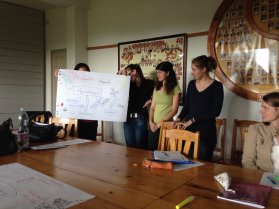
The agroecology education due to its holistic approach presents a remarkable challenge for higher educators. Identification of agroecological elements and their complicated connections require an entirely new educational strategy. SAGITER international project team focuses on the promotion of agroecological knowledge transfer, by combining science-based approach with informal knowledge resulting from everyday experiences. In Hungary, selecting the best knowledge transfer method depends on the basic knowledge of the target group, therefore a thorough real user need assessment was carried out among BSc and MSc students. Results of the survey proved that there are significant differences in knowledge level related to agroecology (e.g.: organic farming; environmental protection; sustainability) originate from their different level and year of study, their different orientation of study, and also the gender was a determining factor. In general it can be stated that students are familiar with the impact of different farming systems on the environment, but they are not with their social and economic aspects. The most significant factor that influences students' knowledge is their previous experiences acquired by practice. This result highlights the importance of the practice in higher education. As a response to the survey, we developed a training â??offer' of modules which covers those knowledge gaps that were explored during our survey: economic and social aspects of agroecology besides environmental protection.
Duration : 10 x 1,5 hours
Period : January to May 2015
10 modules-curriculum was elaborated and tested out by the Hungarian Sagiter team that reinforces the understanding of the complexity of Agroecology. All the modules were tested out in Hungary with Hungarian and foreign students and one module was also tested out in Slovakia. Target groups are students but the level of their studies are indicated under each proposed module.
All the details about the modules (title, objective, duration, and method) are written in English and in Hungarian.
Module 1 : Factors of sustainable agricultural production, its evaluation system and methods http://sagiter.eu/intranet/wakka.php?wiki=FactorsOfSustainableAgriculturalProduction&lang=en
Module 2 : Agroecological knowledge and its employment in eco-farming http://sagiter.eu/intranet/wakka.php?wiki=AgroecologicalKnowledgeAndItsEmploymentIn&lang=en
Module 3 : Experiences of agroecological farming at Zsámbok Organic Market Garden (Field practice)http://sagiter.eu/intranet/wakka.php?wiki=ExperiencesOfAgroecologicalFarmingAtZsambo&lang=en
Module 4 : Transfer of the traditional ecological knowledge, its application regarding the preservation and utilisation of natural resources http://sagiter.eu/intranet/wakka.php?wiki=TransferOfTheTraditionalEcologicalKnowledg2&lang=en
Module 5 : The role of Natural Parks in the generation and formation of ecological approach and thinkinghttp://sagiter.eu/intranet/wakka.php?wiki=TheRoleOfNaturalParksInTheGenerationAnd&lang=en
Module 6 : Sustainability and ecological approach to agriculture; basic factors and the future (production, processing, sale, health, home economy)http://sagiter.eu/intranet/wakka.php?wiki=BasisOfSustainabilityAndConnectionsToThe&lang=en
Module 7 : Methods of agro-ecological knowledge transfer and their application in educationhttp://sagiter.eu/intranet/wakka.php?wiki=MethodsOfAgroEcologicalKnowledgeTransferA&lang=en
Module 8 : Ways of introducing the ecological approach to food supplying systems (bulk goods, local products, alternative routes) http://sagiter.eu/intranet/wakka.php?wiki=WaysOfIntroducingTheEcologicalApproachTo&lang=en
Module 9 : Examples of agroecological farming throughout the history and the necessity of its revival today http://sagiter.eu/intranet/wakka.php?wiki=ExamplesOfAgroecologicalFarmingThroughoutT&lang=en
Module 10 : Efficient plant protection by using homeopathy. Principals and implementation http://sagiter.eu/intranet/wakka.php?wiki=AgrohomeopathyInPlantProtectionOpportuniti/edit&lang=en
Analysis of SZIU training sessions
You can find here the link to analysis sheets of SZIU traineeship.Training of Philipps-Universität Marburg (PUM) - Marburg, Germany
Topics : Agroecological knowlegde, transmission, use for teacher
Agroecological knowledge in Geography
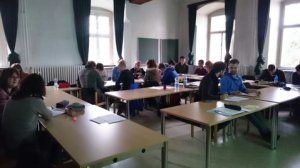
Period : 2016
Objectives of day :
- Learning that â??sustainabilityâ? is an ongoing process
- Make agroecology â??visibleâ?
- Linking theory and practices
Module 1 : This module aims to sensitize the learners about the philosophy of agroecology, and sustainability. Thus, the learner should become aware of AE. This module contains tools to reveal AE.
Module 2 : Focuses on the "learner" themselves. This module is oriented to the practice. The learner should learn about how to teach non formalized knowledge.
For more information (93.0kB)
Analysis of PUM training sessions
You can find here the link to analysis sheets of PUM traineeship about Agroecological knowledge in Geography (0.2MB)Audience : Farmers and future farmers in continuing education and vocational training
Training sessions of Federation of family agrarian schools (EFA Galicia) - Santiago de compostela, Spain
Topics : Agroecology transmission, Pedagogical approach, Field experiences
Cultivation of horticultural varieties
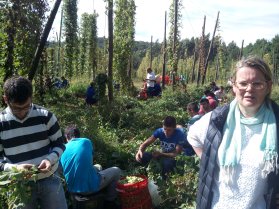
Duration : 8 days along 8 months (following natural cycle)
Period : January 2015 - september 2015
This is a training to recover and transmit agroecological knowledge in cultivation of local horticultural varieties. Details about it are inserted in module 2 of trainer´s manual - Recovery and Transmission of Agroecological Knowledge
Analysis of EFA training sessions
You can find here the link to analysis sheets of EFA traineeship about cultivation of local horticultural varieties.Cultivation of hops
Duration : 14 days along 10 months (following the natural cycle of the crop)
Period : september 2014 - september 2015
This is a training to recover and transmit agroecological knowledge in cultivation of hops. Details about it are inserted in the Module 2 of trainer´s Manual - Recovery and Transmission of Agroecological Knowledge
Analysis of EFA training sessions
You can find here the link to analysis sheets of EFA traineeship about cultivation of hopsMixed audience : Teachers, trainers and agricultural advisors in continuing education
Training session of Educational institute of agro-environment of Florac - Montpellier SupAgro, FranceConcerning SupAgro, training sessions are organised as part of support of French agricultural education. Mixing audience permit enrichment of each others by crossing viewpoints. In this way, our training sessions are often opened to agricultural advisors or whether environmental education actors.
Topics : identification agroecological knowledge - Links between knowledge and territory
From agroecological knowledge to 'terroir' : multidisciplinary approach for a territorial development
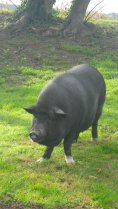
Duration : 3 days
Period : november 2014
This training session focused on identifying agroécological knowledge, its caracteristics. We develop in particular field survey using notion of 'terroir' (french specificity) and designation of origin (AOC : appelation d'origine contrôlée) to explain context of these knowledge.
For more information on this training session : objectives, program, contain, method
Topics : Characteristics and specificity of agroécological knwoledge - Mixing positions of trainers - Tools mobilized
Agroecological knowledge : How to train on it in agricultural education ?
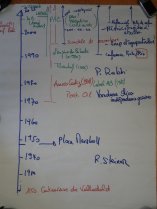
Duration : 3 days
Period : may 2015
During this training session, we mainly worked on positions of accompaniment and facilitator of trainer as well as we illustrated characteristics and specificity of agroecological knowledge.
For more information on this training session : objectives, program, contain, method
Topics : Characteristics and specificity of agroécological knwoledge - Crossing viewpoints and approach. - Tools mobilized
Agroecological knowledge : How to train on it in agricultural education ?
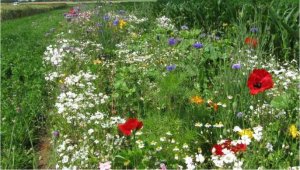
Duration : 3,5 days
Period : november 2015
For this training session, we relied on a working day which brought together researchers of INRA de Colmar (french institute of research on agronomy), winemakers and actors in civil society (associations). This first day permit us by following to work on positions of accompaniment and facilitator of trainer. We finished by a time of pedagogical projection for teachers and trainers.
For more information on this training session : objectives, program, contain, method
Analysis of SupAgro traineeship
You can find here the link to analysis sheets of Florac traineeship.Mixed audience : Teachers, trainers, agricultural advisors, farmers, students
Training sessions of Universitatea de Å?tiin?e Agricole Å?i MedicinÄ? VeterinarÄ? (USAMV) - Cluj Napoca, Roumania
Topics : Crossing viewpoints and approach. - Tools mobilized - Sheparding
Agroecological practices in raising sheep
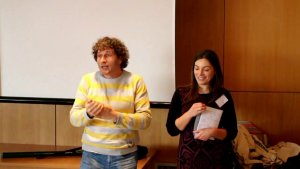
Duration : 3 days
Period : Jul-Sep 2016
Watch the video lecture: https://www.youtube.com/watch?v=3zjBwdzBrTM
Training objectives are acquirement of technics, methods, experiences, and practices of agroecological knowledge to future trainers of breeders in ecological agriculture by pedagogical tools adapted to each territory.
Objectives of agroecological knowledge transmission adresses both on implementation of regional inventory of agroecological practices in sheep breeding and on technique of adapted transmission to territory, and to agro-cultural specificities for implementation of a marketing strategy from each departmental breeders organisation of Transylvania in Roumania.
This training take care about intervention of different actors linked to socio-professionnal activity of sheep breeding (herdsmen, professors, artisans, ethnologists, linguists, trainers, consumers, merchants) by a pedagogical and transversal activity.
For more information : For more information
Download itinerary: FR ROU_USAMV_CJ_Itineraire.doc (39.5kB) / EN ROU_USAMV_CJ_Itinerary.doc (37.5kB)
Training sessions of Chamber of Agriculture and Forestry of Slovenia (CAFS) - Ljubljana, Slovenia
Topics : agroecology, agroecological knowledge, Promoting
Shingle making as an example of nonformal knowledge transfer
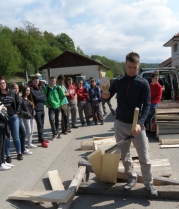
Period : 20. and 21. 04. 2016
To promote the concept and approaches of agroecology the method of non-formal transfer of knowledge was developed. Method is used to inform, senzibilise, initiate discussion about AE knowledge and its importance for different target groups. To test it we took part in "Project days" at agricultural educational institution Biotechnical Center Naklo, Slovenia which is a kind of "festival of knowledge". The method enables participants to get an idea about agroecological knowledge through different levels of activities including observation, discussion and â??hands on experienceâ?.
Link toward descriptive sheet of action
Analysis of CAFS training sessions
You can find here the link to analysis sheets of CAFS traineeship.Coming back to training itinerary :
@ Transmitting agroecological knowledge : our theoretical basis@ Exploring agroecological knowledge
@ Promoting agroecological knowledge

